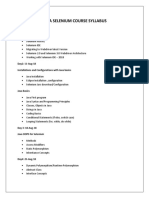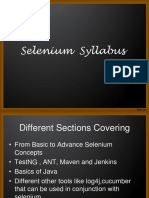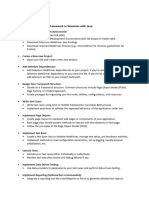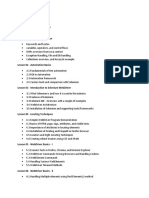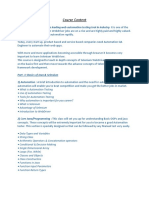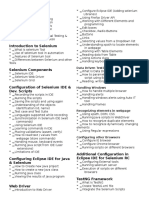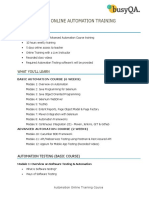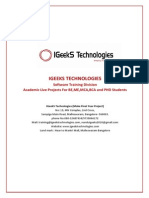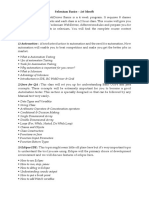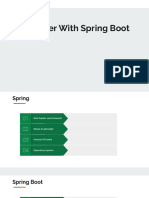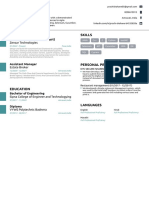0% found this document useful (0 votes)
10 views3 pagesSelenium With BDD Topics
The document provides a comprehensive guide to Selenium, covering its basics, setup, core concepts, and integration with testing frameworks such as TestNG and JUnit. It also introduces Behavior-Driven Development (BDD) with Cucumber, advanced testing techniques, and CI/CD integration using tools like Jenkins and Docker. Additionally, it emphasizes best practices for writing maintainable test scripts and includes a practical project for real-world application.
Uploaded by
INFRA 10'SCopyright
© © All Rights Reserved
We take content rights seriously. If you suspect this is your content, claim it here.
Available Formats
Download as DOCX, PDF, TXT or read online on Scribd
0% found this document useful (0 votes)
10 views3 pagesSelenium With BDD Topics
The document provides a comprehensive guide to Selenium, covering its basics, setup, core concepts, and integration with testing frameworks such as TestNG and JUnit. It also introduces Behavior-Driven Development (BDD) with Cucumber, advanced testing techniques, and CI/CD integration using tools like Jenkins and Docker. Additionally, it emphasizes best practices for writing maintainable test scripts and includes a practical project for real-world application.
Uploaded by
INFRA 10'SCopyright
© © All Rights Reserved
We take content rights seriously. If you suspect this is your content, claim it here.
Available Formats
Download as DOCX, PDF, TXT or read online on Scribd
/ 3








